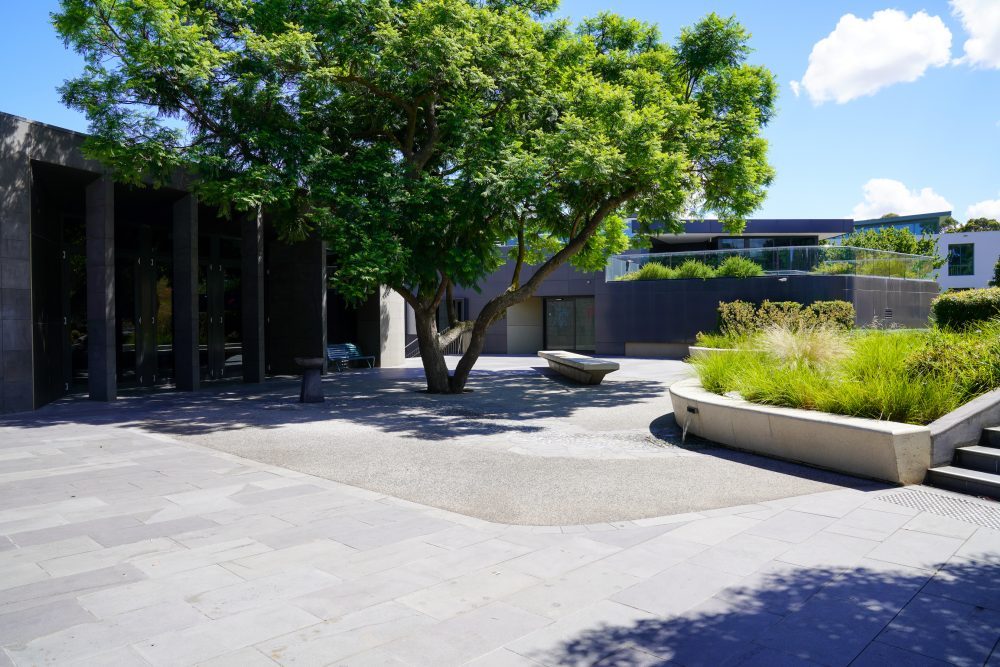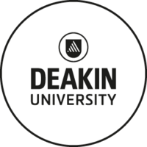
Newsletter
Careers
News May
21 March 2024
This morning the College hosted its annual Mother's Day Breakfast, an opportunity for us to celebrate all mothers of the College and the vitally important role they have in shaping our young men.
Thank you to the Welcoming Community Group for facilitating this important event and we wish all the mothers in our community a Happy Mother's Day for this Sunday!


Last Friday, 3 May, The SBC Foundation hosted the annual Gala Dinner, incorporating Hall of Fame inductions.
It was another tremendous evening to celebrate excellence amongst our Community. Mr Ben Carroll MP and Mr Don McKenzie were inducted into the SBC Hall of Fame and both spoke wonderfully on the night
We would like to thank all student leaders & musicians for representing the College so fantastically on the night, it was great to have such a strong student presence and really showcase our students.
Innovative Victorian aged care provider Lifeview is excited to unveil a new intergenerational art program, which will connect secondary school aged students and residents living at Lifeview homes.
Local secondary students in Years 10-12 will be invited to participate in Lifeview’s inaugural Reilly Art Prize program, which will see students paint a portrait of a resident across several visits - more information and how to signup can be located via this link
This is a great opportunity for our senior art students to showcase their talents, the art program is also named after Old Collegian Mr Peter Reilly OAM, who is a tremendous supporter of the College.
Snapshot of The Australian National University (ANU) in 2024
Although the main campus is based in Canberra in the ACT, ANU is Australia's only national university. It has campuses in ACT, NSW, and the NT.
ANU ranks 4th in Australia and 34th in the world in the QS World University Rankings 2024: Top Global Universities | Top Universities and ANU counting six Nobel Laureates among its staff and alumni. It also has one of the highest average academic staff to student ratios among Australia's leading universities according to the Good Universities Guide.
ANU has seven academic colleges:
College of Arts and Social Sciences
College of Asia and The Pacific
College of Business and Economics
College of Engineering, Computing and Cybernetics
College of Health and Medicine
Students wishing to study at ANU can choose from a range of disciplines and degree structures, from single, double and research undergraduate and postgraduate programs.
At ANU the Doctor of Medicine and Surgery (MChD) is a postgraduate, four-year degree - students cannot study medicine as an undergraduate at ANU. Further information on the admissions process and how to apply is available on the ANU Medical School website.
Students looking for an undergraduate pathway to medicine without sitting the GAMSAT, might like to consider the Bachelor of Health Science.
ANU students are encouraged to enhance their learning experience and take advantage of national and international global study opportunities which can count credit towards their degree.
Prospective and current ANU student have access to many scholarships to support with the cost of their studies.
ANU offers a broad range of accommodation choices for students, within a diverse and vibrant community.
Talk with Industry Webinars
This month, ACU will host three Talk with Industry webinars, and students are encouraged to participate in those that are of interest.
The talks will take place from 6.00pm – 6.45pm. Registrations are essential and can be made here.
Talk with Physiotherapists, Exercise Scientists and High-Performance Sport Professionals | 7 May |
Talk with Psychologists, Youth Workers, and Social Workers | 14 May |
Talk with Specialist Nurses | 15 May |
Reminder: University Clinical Aptitude Test
The University Clinical Aptitude Test (UCAT) is an admissions test used by the UCAT ANZ Consortium of universities in Australia and New Zealand for their medical, dental, and clinical science degree programs. Universities requiring the UCAT are listed at this link - Universities requiring the UCAT. Students intending to apply for courses requiring the UCAT at any of these universities are reminded that they will need to book a test.
Bookings close 17 May 2024. The testing dates will be from 1 July 2024 to 9 August 2024.
News from Monash University
Monash Science Precinct Tours 2024
Students thinking of studying Science at Monash, might like to take a closer look and see science facilities and student spaces, and get a feel for campus life and have a chat with some of the science students and staff.
Date: Tuesday 2 July OR Thursday 4 July OR Tuesday 9 July OR Thursday 11
Visit Monash Science Precinct Tours 2024 and book a spot.
Monash University will be hosting several Discover Monash events or activities over the coming weeks. Unless specified online**, these will be face-to-face events.
Participating in one or more of these events will assist students in making informed choices about their study options after Year 12.
The following events will take place from June to August and students are encouraged to register early. For a complete list, and to register, visit Events Calendar - Discover Monash.
Discover Criminology and Criminology/Policing | Tuesday 4 June, 6.30 – 8.00pm |
Discover Design | Tuesday 4 June, 6.00 - 7.00pm |
Discover Bachelor of Learning Design and Technology | Tuesday 4 June, 6.00 - 7.00pm |
Discover Fine Art and Curating | Wednesday 5 June, 6.00 - 7.00pm |
Discover Education: Clayton | Wednesday 5 June, 6.00 - 7.00pm |
Discover Architecture | Thursday 6 June, 6.00 - 7.00pm |
Discover Education: Peninsula | Thursday 6 June, 6.00 - 7.00pm |
Discover Bachelor of International Relations | Monday 24 June, 6.30 - 8.00pm |
Discover Business: A World of Possibilities – Webinar** | Wednesday 10 July, 1.00 - 2.00pm |
Discover Industry Experience in an IT Degree | Wednesday 10 July, 6.00 - 7.00pm |
Monash Information Evening - Clayton | Tuesday 16 July, 6.30 - 8.00pm |
Clayton Campus Tour | Friday 16 August, 2.00 - 3.30pm |
Clayton Campus Tour | Monday 19 August, 10.00 - 11.30am |
Monash Information Evening – Webinar** | Wednesday 21 August, 6.30 - 8.00pm |

What is a Sports Physiotherapist?
The Health Times website indicates that sports physiotherapy is a specialised branch of physiotherapy, and sports physios provide advice on how to avoid sports injuries, treat injuries and help recovery for those playing recreational sport right through to elite sport.
A sports physio is a registered physiotherapist who has achieved further study after completing a physiotherapy degree - in which students achieve an understanding of the physical, structural and the physiological aspects of human form and movement.
To become a sports physio, one will first need to complete a four-year bachelor degree in physiotherapy. Alternatively, students can complete an associated bachelor degree, such as in exercise physiology, followed by a postgraduate qualification in physiotherapy.
Physiotherapists can later choose to practice in sports physiotherapy but are unable to refer to themselves as a sports physio until they have achieved titled membership of the Australian Physiotherapy Association (APA).

What does a Radiation Therapist do?
The Good Universities Guide states that Radiation Therapists design, and administer radiation treatment to cancer patients, and provide related care to patients in conjunction with radiation oncologists or other medical specialists. The Health Times website indicates that a Radiation Therapist is also responsible for collecting relevant patient information and using this information to plan a patient’s treatment. A radiation therapist will work under the guidance of a Radiation Oncologist, in a team of health professionals who care for and treat cancer patients.
Radiation therapists are responsible for supporting the patient throughout their treatment. They must have compassion and strong interpersonal skills. Part of their role is to listen to the emotional concerns and anxieties of the patient and refer them appropriately if needed. The radiation therapist will also assess the patient’s reaction to treatment, providing advice on the side effects of treatment and methods of alleviating these. Radiation therapists often develop close relationships with their patients, as they usually see them five days per week for between three and seven weeks.
To become a Radiation Therapist, students must study radiation therapy at university. Studies in Radiation Therapy in Victoria are offered by Monash University and RMIT University, and Radiation Science units are offered in the Medical Imaging degree offered by Deakin University.

What does a Neuroscientist do?
According to the Medical News Today website neuroscientists focus on the brain and its impact on behaviour and cognitive functions, or how people think. Neuroscience is an interdisciplinary science that works closely with other disciplines, such as mathematics, linguistics, engineering, computer science, chemistry, philosophy, psychology, and medicine. Neuroscientists carry out tests, using various types of technology to help them to diagnose conditions, and they usually specialise in specific areas. These include study of the way the nervous system grows and develops; the way the brain deals with thought, language, memory, and its ability to solve problems; or molecules that help with the way the nervous systems work.
To become a neuroscientist, students generally have to complete a science degree - such as a Bachelor of Science or Bachelor of Biomedicine with a major in Neuroscience at the University of Melbourne, for example. Completion of a postgraduate qualification is regarded as of great value - such as Graduate Diploma in Clinical Neuropsychology, Master of Science in Medicine (Clinical Neurophysiology) and Master of Neuroscience. The following link is very interesting to browse - Master Programs in Neuroscience.

What is Land Surveying?
Interested in Geography, Maths, Science, IT and/or the outdoors? Looking for a job that won’t tie you to a desk? Surveying is the measurement and mapping of our surrounding environment using mathematics and specialised technology. Land surveyors are involved with a diverse variety of projects from land subdivision to tunnel building and major construction. Importantly though, there is much more to surveying than taking measurements outdoors and then analysing them back in the office. Surveyors are often the first people on site during any construction process; they are the guardians of property law, and the creators of land titles. They are also the ones who can sign off on the position of new title boundaries. In all, surveyors are an integral part of the process in a wide variety of scenarios.
Note: Surveying courses are offered at Federation University, RMIT, and Victoria University.
Students who wish to find out what surveying is, what surveyors do, where to study, and what it takes, might like to browse A Life Without Limits.

Bachelor of Artificial Intelligence
Gain the skills necessary to design, develop, and evolve software solutions that takes advantage of the latest advances in artificial intelligence.
Deakin’s Bachelor of Artificial Intelligenceequips students with the knowledge and skills to design, develop and evolve software solutions that harness the latest advances in artificial intelligence (AI). Students get hands-on experience developing AI-driven software solutions with the support of academics who are leaders in this emerging field. Deakin’s world-class research in AI feeds directly into its classrooms, ensuring what students learn is at the cutting edge of industry expectations and capabilities.
With a minimum of 100 hours of industry experience, students will develop in-demand skills working side-by-side with experienced AI specialists.

Australian Apprenticeships and Traineeships Information Service
The Australian Apprenticeships and Traineeships Information Service (AATIS) offers pathways information to students, job hunters, career advisers and employers. The website, app and resources are used by schools, parents, friends, and supporters providing career planning and direction. AATIS is free to use and is funded by the Australian Government Department of Education, Skills and Employment.
The Australian Apprenticeships Pathways website - AAPathways - is a hub providing in-depth information about Australian apprenticeships and traineeships, including information on in-demand occupations.
Students are encouraged to browse both the AAPathways website, as well as the AATIS website.